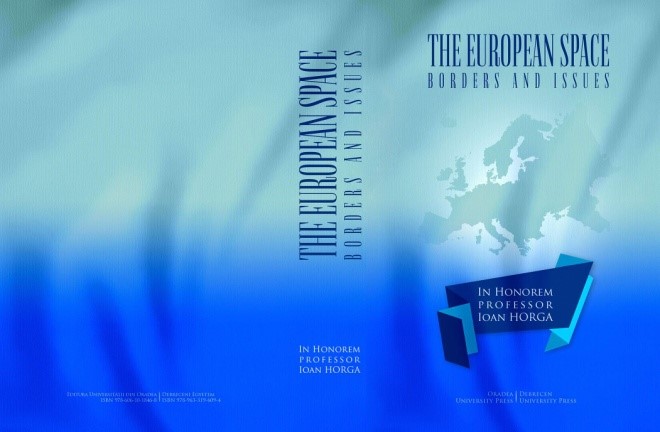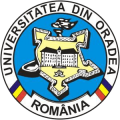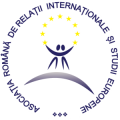Module leader
Lecturer PhD at the Faculty of History, International Relations, Political Sciences and Communication Sciences, head of the Department of International Relations and European Studies, member of the Institute for Euro-regional Studies Oradea-Debrecen and Romanian Association of International Relations and European Studies.
Experience in working with local and Euroregional funds as project member in: Mass-Media and Intercultural Dialogue in Europe without Borders (Jean Monnet Module, 2007-2010); Boosting Innovation through Capacity Building and Networting of Science Centre in the SEE Region (The South East Europe Transnational Cooperation Programme, 2012-2014); The Frontier – Space of Innovation and Cooperation in European Union (financed by Oradea City Hall, 2013); European Union and Its Neighborhood. Network for Enhancing EU’s actorness in the Eastern Borderlands (Jean Monnet Network, 2017-2020).
Member of the editorial staff for Eurolimes Jornal and executive editor for Annals of the University of Oradea. International Relations and European Studies Series.
Scientific interests are focused on: evaluation of European politics and programs; assessment of human capital; evaluation of cross-border programmes, quality assurance in higher education institutions.
Relevant publication:
The Role of Cross-Border Cooperation in Cross-Border Region Branding (in collaboration with Luminița Șoproni and Alina Stoica), in „The Evaluation of Cross-border Cooperation in Europe”, Constantin-Vasile Țoca, Ioan Horga, Luminița Șoproni (eds.), Debrecen University Press, Debrecen, ISBN 978-963-473-961-6, pp. 47-56, 2017 Abstract: At the inter-regional level, the brand has the objective of enhancing the cooperation between the partner-regions, to sustain the local development and to promote the shared values of the territory. Even if the cross-border areas have different cultural backgrounds, their cooperation can determine a framework for dialogue and cohesion. The proposed case study brings about arguments in favour of the above mentioned considerations, being focused upon the impact of the implemented projects in the frame of HU-RO CBC 2007-2013 in Bihor and Hajdu-Bihar Counties.

The European Space. Borders and Issues (in collaboration with Mircea Brie, and Alina Stoica), Debrecen University Press, Debrecen, ISBN 978-963-319-609-4, 586 p., 2016
Abstract: The analysis on the character of the EU, the essence of the European integration process, the many types of internal and external borders are in a constant change under the impact of numerous factors of influence of all kinds, and this is the very topic of this volume. The first part of the volume summarizes some theoretical research and empirical studies on the historical and political realities in the European space. The following section deals with the realities of the border space in the context of the European integration process, and the last part largely addresses security and cooperation issues in Europe in the context of the challenges arising from the changes that have occurred over time.
The Role of Cross-Border Cooperation in the Creation of European Cultural Networks. The Hungary-Slovakia-Romania-Ukraine ENPI CBC Programme (20017-2013), in „The European Space. Borders and Issues” (in collaboration with Mircea Brie, and Alina Stoica), Debrecen University Press, Debrecen, ISBN 978-963-319-609-4, pp. 535-562, 2016
Abstract: The changes witnessed along the years in European countries bring forth new perspectives, imposing the use of new concepts and approaches in a post-modernist and post-colonial society. Moreover, the creation and enlargement of the political and economic construction that today we call the European Union has raised culture to a higher level. Thus, in parallel to keeping its anthropological dimension, based on a symbolic world of meanings, beliefs, values and traditions expressed through art, religion and myths, culture fully contributes to the construction of the identity of a community and to its dynamic and progressive development. In this context, the study intends to highlight a mechanism for the establishment of cultural networks as part of the cross-border cooperation programmes financed by the European Commission during the 2007-2013 budgetary programming period.
The role of culture in regional competitiveness, published in Alina Stoica, Ioan Horga, Maria Manuela Tavares Ribeiro (eds.) ”Culture and Paradiplomatic Identity. Instruments in Sustaining EU Policies”, Cambridge Scholars Publising, ISBN: 978-1-4438-8734-2, pp. 113-128, 2016
Abstract: In the European Union the competitiveness issue has gained a special significance with the Lisbon Strategy increasing the interest in the results of each region or city. The study aims to highlight culture as a “soft” element of the socio-economic development and cultural capital contribution to the progress of the region, giving it a competitive advantage on the European scene.
The role of culture in the regional development process. Sibiu – European Capital of Culture 2007 (in collaboration with Alina Stoica), published in ”Debater a Europa”, no. 12, janeiro/junho, 2015
Abstract: In the recent years, an increased interest in the use of culture as an instrument of politics and economics has expanded and influenced regional development. This paper aims to highlight the ability of culture to generate wealth for the community, on the one hand, and on the other as a catalyst for durable regional economic recovery.
The Role of Universities from North-Western Romania in the Development of Regional Knowledge – Based Economies, paper published in ”Annals of the University of Oradea. International Relations and European Studies Series”, no. VII, University of Oradea Press, Oradea, pp. 167-182, 2015 Abstract: In the national and supranational processes and strategies to implementation of regional knowledge–based economy, a leading role is played by universities. The study highlights the mechanisms through which partnerships involving academic communities succeed in transforming knowledge in technologies and “services economically and socially assimilated”.






